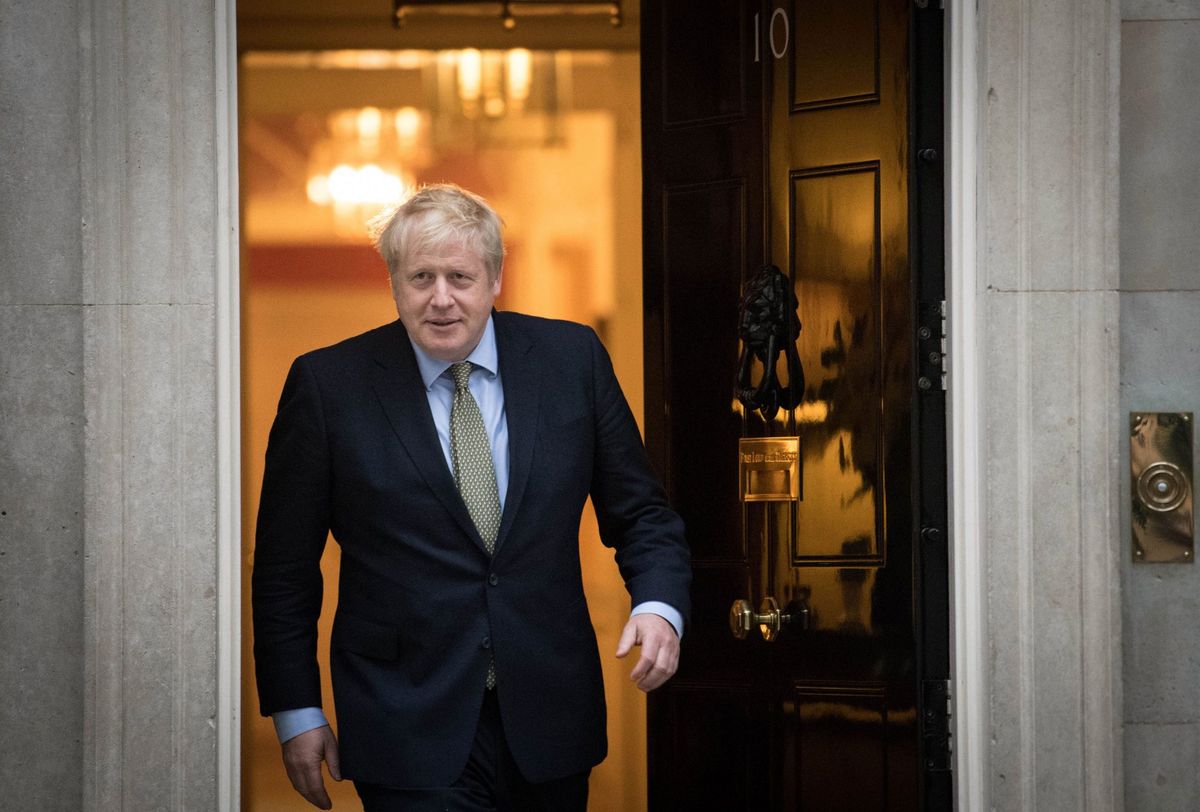The UK is set to leave the EU on January 31. Here’s what you should know

A few minutes every morning is all you need.
Stay up to date on the world's Headlines and Human Stories. It's fun, it's factual, it's fluff-free.
At 11 p.m. local time on January 31, 2020, nearly three and a half years after the original Brexit referendum was voted on, the United Kingdom is set to leave the European Union. Since the referendum, the UK has been through two general elections and had three different prime ministers.
The UK’s current prime minister, Boris Johnson, made “getting Brexit done” a central promise of his election campaign in the lead up to the Conservative Party’s historic victory in December 2019. While Johnson is now set to deliver on that promise, much remains uncertain about what comes next.
What will happen on January 31?
In the simplest terms, essentially nothing will happen when the clock strikes 11 on the evening of January 31. Despite Johnson having triumphantly claimed that the UK has “crossed the Brexit finish line”, a lengthy transition period was built into the UK-EU withdrawal agreement. Until December 31, 2020, the UK is still subject to EU rules and will remain in the EU single market and customs union.
The transition period (or “implementation period”) was initially established by Johnson’s predecessor, Theresa May. If the UK had left the EU in March 2019, per the original schedule, it would have given the two political bodies 21 months to negotiate trade deals and shore up their political relationship.
However, May was unable to complete the Brexit deal and it fell to Johnson to get enough support in Parliament to officially pass a Withdrawal Agreement. Now, the UK has eleven months in which to complete negotiations.
While the average British citizen won’t see a difference when they awake on February 1, some changes will have taken place on a political level. The UK will no longer have any Members in the European Parliament (MEPs), nor will any UK national ministers take part in the EU Council. In short, the UK will no longer have a say in EU laws and regulations.
[article_ad]
Trade negotiations between the UK and EU
A major concern going forward is figuring out a trade deal between the UK and EU. As part of the union, the UK negotiated trade collectively with the other 27 countries. Now, though, the UK will have to establish a deal with the EU that provides for fair trade between the entities, including tariffs on goods crossing from the EU to the UK, and vice versa.
The negotiations are set to start on March 3, which gives the two parties ten months to come to an agreement on a complex issue. Experts are concerned that the UK could hit a “cliff edge” without a trade deal in place that would end up hurting the economy, specifically affecting companies that do business abroad or have a workforce in other countries.
What will happen to citizens of the UK and EU?
One of the most contentious issues for the Leave campaign was the level of immigration from EU countries. At the time of the vote, there were 3.3 million citizens from other EU countries living in the UK, compared to 1.2 million British citizens living in other EU countries. Once the Brexit deadline passes, the status of both groups will remain temporarily uncertain.
That is because the transition period also applies to the various citizens living abroad. That means that until 2021, UK citizens in other countries, and EU nationals in the UK, will continue to live under the same rules as they did prior to Brexit. The transition period will be used to figure out the next steps.
In some cases, countries have indicated what could happen. For instance, Spain has already voted to protect the rights of the more than 300,000 Britons in the country. However, the Spanish government has said it is dependent on the UK reciprocating with similar protections for Spanish citizens living in Great Britain.
How did the UK get here?
When the UK joined the EU (then the European Economic Community) in 1973, political pressure brought about a referendum to let the public vote on whether the country would stay in the bloc. At that time, more than 67% of the country voted to remain in the EEC. Four decades later, similar political pressure led then-Prime Minister David Cameron to call for another referendum on membership in the EU.
Prior to the vote, the opposing sides of the issue formed into competing campaigns: Vote Leave and Britain Stronger In Europe (commonly called Remainers). One of the most vocal Leavers was Boris Johnson, the former mayor of London who became prime minister in 2019.
With roughly 72% of the country voting on June 23, 2016, the Leave campaign narrowly beat the Remainers 52% to 48%. Cameron has said he regrets having called for the referendum and that he didn’t work hard enough to ensure the Remain campaign won.
[article_ad]




Comments ()